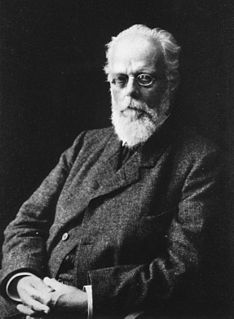A Quote by Wallace D. Wattles
It is a natural law that like causes always produce like effects; and, therefore, any man or woman who learns to do things in this certain way will infallibly get rich.
Related Quotes
Man is made for science; he reasons from effects to causes, and from causes to effects; but he does not always reason without error. In reasoning, therefore, from appearances which are particular, care must be taken how we generalize; we should be cautious not to attribute to nature, laws which may perhaps be only of our own invention.
For what you call the Law is but a club of the rich over the lowest of men, sanctifying the conquest of the earth by a few and making their theft the way of things. But over and above these pitiful statutes of yours that enclose the common land and reduce us to poverty to make you fat stands the Law of Creation, which renders judgement on rich and poor alike, making them one. For freedom is the man who will thus turn the world upside down, therefore no wonder he has enemies
I listen to audiobooks: the last one was Vivienne Westwood's biography. She's the most amazing woman. The way she's used her platform in fashion to be an activist and promote causes like global warming, climate change, and inequality in the world... It gives high fashion, what seems like it can be 'for a certain group,' a way to help real causes.
It is one thing to say that science is only equipped to test for natural causes and cannot speak to any others. It is quite another to insist that science proves that no other causes could possibly exist. . . . There would be no experimental model for testing the statement: 'No supernatural cause for any natural phenomenon is possible.' It is therefore a philosophical presupposition and not a scientific finding.
We speak erroneously of "artificial" materials, "synthetics", and so forth. The basis for this erroneous terminology is the notion that Nature has made certain things which we call natural, and everything else is "man-made", ergo artificial. But what one learns in chemistry is that Nature wrote all the rules of structuring; man does not invent chemical structuring rules; he only discovers the rules. All the chemist can do is find out what Nature permits, and any substances that are thus developed or discovered are inherently natural. It is very important to remember that.
A man will not roll in the snow for a stream of tendency by which all things fulfill the law of their being. He will not go without food in the name of something, not ourselves, that makes for righteousness. He will do things like this, or pretty nearly like this, under quite a different impulse. He will do these things when he is in love.
































